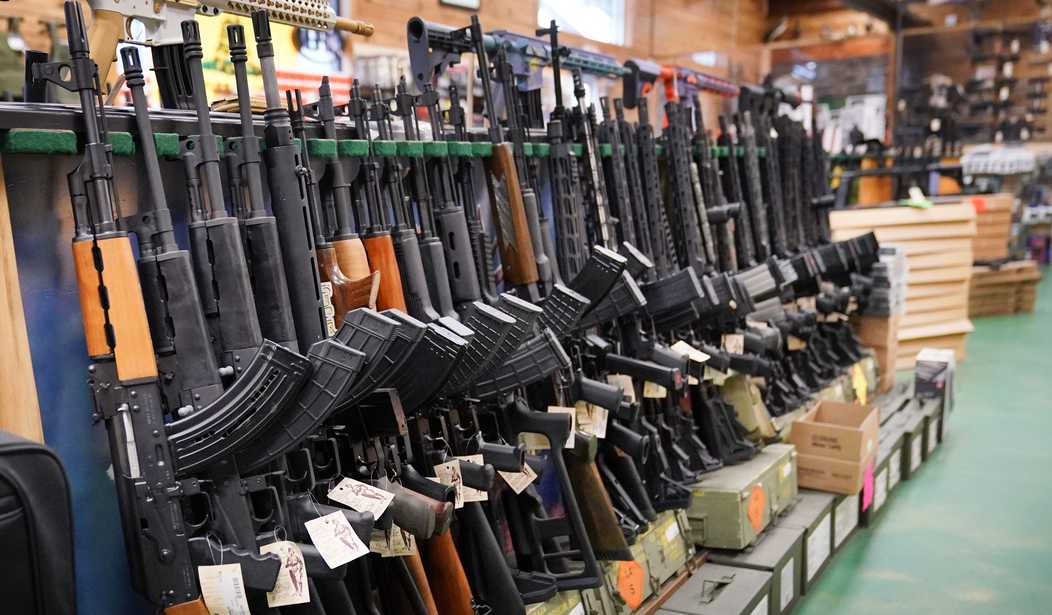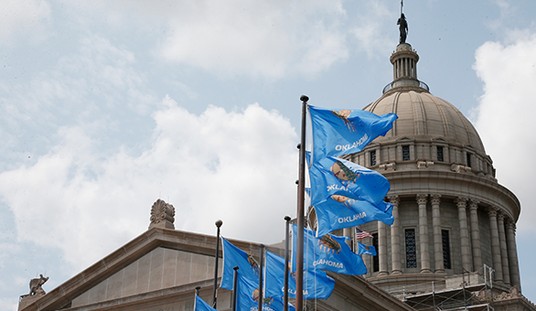Part of the problem with the gun control argument is that it's mostly predicated on blaming the gun for the actions of an individual. It wasn't the killer who killed people, it was the gun.
No, gun control advocates won't agree with that observation, but they really do seem more focused on guns than people. They keep calling for restrictions that will apply to people who have no ill intentions whatsoever and ignore the fact that the lion's share of the problem is with people who aren't going to follow those rules anyway.
Unfortunately, we've seen a handful of cases lately where people are being blamed for shootings, and the problem is that it's not the people who are actually carrying out the shooting.
In Virginia, an assistant principal is charged with child abuse after failing to intervene before a 6-year-old shot his first-grade teacher.
In Michigan, a couple is sentenced to a decade in prison for failing to stop their 15-year-old son from gunning down four high-school classmates.
And in Illinois, a father pleads guilty to reckless misconduct after his son killed seven people at a Fourth of July parade.
The cases represent a new type of weapon in the country's gun violence epidemic: a prosecutorial one. New legal approaches and laws are widening the scope of accountability for those who not only pull triggers, but also for educators, parents and others who fail to report red flags.
Prosecutors and lawmakers are increasingly taking aim at people who could have taken steps before innocent victims were maimed or killed.
"As far as I know, this is really groundbreaking," said James Ellenson, a lawyer for Deja Taylor, the mother of the 6-year-old boy who shot his teacher in Virginia, speaking about the criminal charges against the school official in the case. A special grand jury released a report Wednesday outlining failures by the school administration.
For decades, parents of school shooting victims and gun control advocates have looked to Congress to pass legislation that would prevent mass shootings by regulating firearms. But those proposals have largely failed amid backlash from gun rights advocacy and special interest groups, conservative lawmakers and American gun owners.
Now, prosecutors are stepping in. And while it is still rare for the parents or guardians of a shooting suspect to be charged, the successful outcome of the prosecutions could encourage other prosecutors to pursue similar cases, legal experts told USA TODAY.
Now, let's note that the three examples given above really involve some degree of gross negligence on the part of the adults. The Crumbleys basically didn't give a damn about what their kid was doing, ignored indicators that he was dangerous, and actively facilitated him having access to a firearm.
The Highland Park killer's father also actively ignored warnings to facilitate his son getting a gun.
The assistant principal in Virginia ignored multiple warnings from staff members that the student had a gun and did nothing.
These were pretty egregious actions that contributed to the shootings in question. I think a lot of people agree that at least some punishment is warranted in all or most of these cases. The issue is, where does it stop?
With cases of gross negligence like those above, it's easy to dismiss it as either justified or maybe a slight overreach with regard to the charges, but still ultimately a case of charges being warranted to some degree or another.
Yet how long until it's a case of a parent who has a gun safe key on his keyring, but puts it in a bowl or something so he can find it, only to have his kid lift it out of the bowl, access the safe to get a gun, then hurt someone? How long until this leads to a parent being prosecuted for not knowing about the illegal gun purchase their kid made?
So far, this is a tool that's been used against people few feel any real sympathy for. If this continues, it won't stay that way. It'll get used in cases that are more and more nebulous. Once a prosecutor sees a case that's just a smidge more egregious than the one he or she can level, they'll jump at it.
For now, we can make the case that some level of responsibility really does rest on these people, even if the charges are a bit much. It won't stay that way, particularly in anti-gun jurisdictions, and that should scare the ever-loving crap out of all of us.
Prosecutors are political creatures, in most cases. Some might really want to make their communities better, but many others really just see their jobs as political stepping stones to higher office. They'll try anything to make a name for themselves and this gives them a golden ticket to do just that.
You're out of your mind if you think they won't.








Join the conversation as a VIP Member